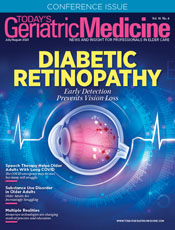
July/August 2023
Editor’s Note: Over but Not Over The pandemic began more than three years ago, and finally, in May, the federal government declared an end to the COVID health emergency. At about the same time, the World Health Organization similarly determined that the global crisis had ended. When the CDC first made its declaration on January 31, 2020, that the virus was a health emergency, not a single American had yet died. Since then, more than 1.1 million Americans have lost their lives to the virus. At the end of the emergency, there were fewer deaths from COVID than at any time since March 2020, and fewer hospitalizations since that information began being recorded in August 2020. While masks have come off, and even though the CDC has recommended a second dose of the bivalent vaccine for older adults and immunocompromised individuals, interest in vaccination has waned. More than 1,000 Americans die of COVID each week, most of them older adults. Although the CDC no longer has the authority to require states to report cases or labs to report test results, there’s no question the virus will continue to cause serious illness and take lives long into the future, and its impact upon the health care system will reverberate. And for the more than 1 in 5 COVID patients who experience what’s come to be called long COVID, or postacute sequelae of SARS-CoV-2 infection, the impact of the virus can last for months or even years. Much about long COVID is unknown, but it can affect people of any age, whether they had mild or severe disease, although it’s less likely to occur in people who’ve been fully vaccinated. Symptoms are wide-ranging—pulmonary, cardiovascular, neurological, gastrointestinal, and more. Since there’s no single treatment for long COVID, approaches must be tailored to individual symptoms. In a feature in this issue, Avivit Ben-Aharon, MS ED, MA, CCC-SLP, discusses the ways speech therapists can help older adults address aspects of long COVID, including cognition issues, such as brain fog; communication issues; and speaking ability. Also in this issue are feature articles on substance use disorder in older adults, diabetic retinopathy, and the ways in which immersive technologies are changing medical practice and education. In addition, look for articles on medication-related hearing loss, the association between dementia and fall risk, the potential interaction between cannabis and warfarin, smart technology solutions for protecting fragile hips, and what geriatricians should know about suicide pacts and murder-suicides. — Kate Jackson |
